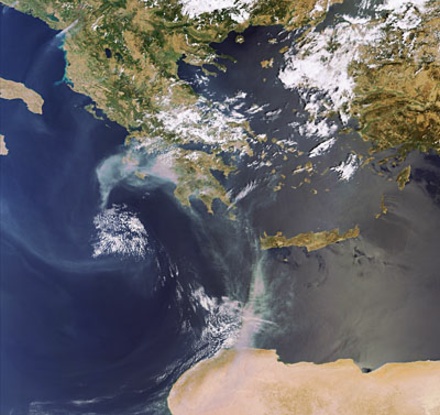Adolescents with earlier bedtimes are significantly less likely to suffer from depression and suicidal thoughts, suggesting that earlier bedtimes could have a protective effect by increasing the likelihood of getting enough sleep, reports a new study in the journal Sleep.
The results show that adolescents with parental set bedtimes of midnight or later were 24 percent more likely to suffer from depression (odds ratio = 1.24) and 20 percent more likely to have suicidal ideation (OR=1.20) than adolescents with parental set bedtimes of 10 p.m. or earlier. This association was appreciably attenuated by self-reported sleep duration and the perception of getting enough sleep.
A team of radiologists publishing in Autism Research says that children with autism spectrum disorders (ASDs) process sound and language a fraction of a second slower than children without ASDs, and measuring magnetic signals that mark this delay may become a standardized way to diagnose autism.
The researchers used magnetoencephalography (MEG), which detects magnetic fields in the brain, similar to the way electroencephalography (EEG) detects electrical fields. Using a helmet that surrounds the child’s head, the team presents a series of recorded beeps, vowels and sentences. As the child’s brain responds to each sound, noninvasive detectors in the MEG machine analyze the brain’s changing magnetic fields.
Archaeologists from the Department of Biblical Studies at the University of Haifa say they've deciphered the earliest known Hebrew writing in existence, an inscription dating from the 10th century BCE (the period of King David's reign). The discovery is significant because it means the Bible may be several centuries older than current estimates suggest, researchers say.
"It indicates that the Kingdom of Israel already existed in the 10th century BCE and that at least some of the biblical texts were written hundreds of years before the dates presented in current
research," says Prof. Gershon Galil of the University of Haifa who deciphered the inscription.
Writing in the January 8 issue of Science, a group of environmental scientists is calling on the U.S. Environmental Protection Agency and the U.S Army Corps of Engineers to stay all new mountaintop mining permits. They argue that peer-reviewed research unequivocally documents irreversible environmental impacts from this form of mining, which also exposes local residents to a higher risk of serious health problems.
Contrary to the conclusions of dozens of other studies, a new paper appearing in Global Change Biology argues that as the climate warms and growing seasons lengthen, subalpine forests are likely to soak up less carbon dioxide. The authors, scientists at the University of Colorado, say that more of the greenhouse gas will be left to concentrate in the atmosphere as a result.
The researchers found that while smaller spring snowpack tended to advance the onset of spring and extend the growing season, it also reduced the amount of water available to forests later in the summer and fall. The water-stressed trees were then less effective in converting CO2 into biomass. Summer rains were unable to make up the difference.
When people think of the Cold War they tend to dwell on all the negatives that came with it: totalitarian governments, proxy wars, a nuclear arms race, and so on. But looking back on the period, the authors of a new paper in the journal Biological Conservation say there was an odd ecological benefit that resulted from the interruption of trade that occurred between Eastern and Western Europe during the Cold war--fewer invasive species.
"Global trade is a real concern for invasive species, and the lessons we can learn from the Cold War offer a warning flag to developing countries that are now expanding in an international economy," said co-author Susan M. Shirley.
 Study: Caloric Restriction In Humans And Aging
Study: Caloric Restriction In Humans And Aging Science Podcast Or Perish?
Science Podcast Or Perish? Type 2 Diabetes Medication Tirzepatide May Help Obese Type 1 Diabetics Also
Type 2 Diabetes Medication Tirzepatide May Help Obese Type 1 Diabetics Also Life May Be Found In Sea Spray Of Moons Orbiting Saturn Or Jupiter Next Year
Life May Be Found In Sea Spray Of Moons Orbiting Saturn Or Jupiter Next Year









